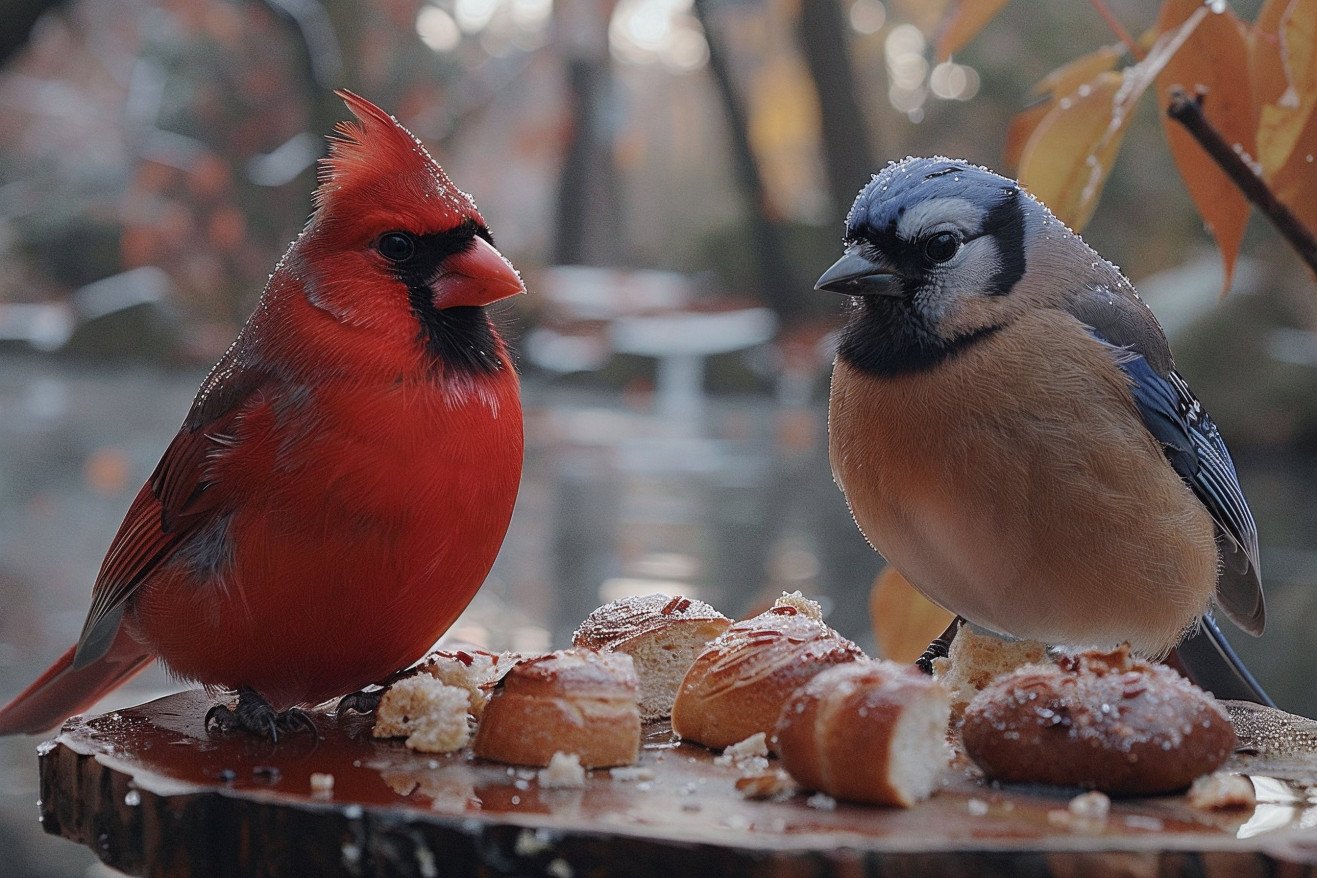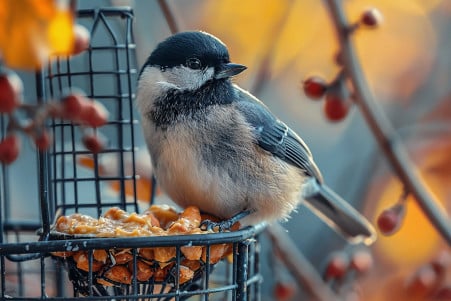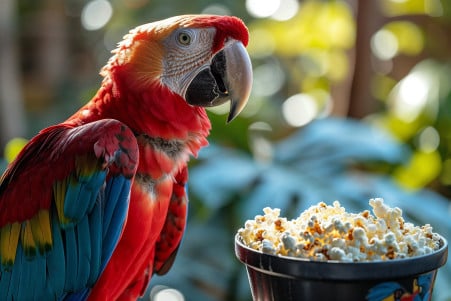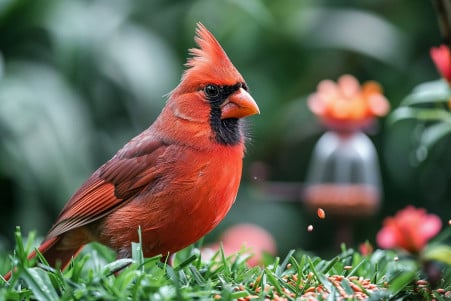Can You Feed Birds Bread? The Science of Bird Feeding
18 February 2024 • Updated 18 February 2024

While feeding birds may be a popular pastime, the simple act of tossing a piece of bread to a bird can have unintended consequences. Birds can eat bread, but it’s not very nutritious, so it should be fed to them in moderation.
If you do decide to feed birds bread, opt for whole-grain or seeded bread that’s stale but not moldy. That said, because bread doesn’t contain the proteins and nutrients birds need, it’s best to feed them high-quality seed mixes, fruits, and nuts.
To provide a more complete picture, we will draw on interdisciplinary research from the fields of ornithology, ecology, and animal nutrition science to shed light on the impact of human-provided foods like bread on bird populations.
We will examine research on the impact of bread on bird digestion and metabolism, the nutritional needs of birds, and the broader ecological impacts of bird feeding. This information will help us better understand the potential effects of these feeding practices on bird health and ecosystem well-being.
Can you feed birds bread?
Bread Is Nutritionally Empty for Birds
While bread is often considered a quick and easy food to feed birds, it doesn’t contain the nutrients that are necessary for birds to be healthy. In fact, Avian Report explains that bread is made up almost entirely of carbohydrates and doesn’t contain the right balance of proteins, fats, and carbohydrates that birds need in their diet.
This can lead to malnutrition and other health problems, especially if birds are eating bread instead of other, more nutritious food.
In fact, Armstrong Bird Food explains that the consequences are even more dire for young birds and ducklings who may fill up on bread and not get the nutrients they need for proper growth and development. In addition, they may not learn how to forage for food, a skill that’s essential for their survival in the wild.
Instead, experts suggest feeding birds a diverse array of kitchen leftovers and grains, including fruits, nuts, beans, and seeds, rather than bread to ensure they receive the optimal nutrition they require. Indeed, brands like Red Ribbon®, Scotts®, and Morning Song® produce seed blends that are specifically formulated to fulfill the dietary requirements of wild birds, guaranteeing that they are healthy and well-nourished without the detrimental effects of consuming bread.
While some people may want to hold onto the idea that bread is a good food to feed birds, the truth is that there are many better options that can help ensure that birds are healthy and thriving. Making the switch to these better alternatives can help ensure that individual birds and bird populations are healthy and thriving.
The Impact of Bread on Bird Digestion and Health
Birds have a unique digestive system that has evolved to meet their specific dietary needs. For instance, although birds don’t have teeth to chew their food, they have a gizzard, a muscular part of the stomach that in seed-eating birds is filled with grit that helps grind up food.
The digestive system of birds, as outlined by Colorado State University, is well-suited to help them break down a wide range of natural foods from seeds to insects. However, the introduction of bread and other non-natural foods can throw a wrench in the works.
Not only does bread lack the fibrous texture that gizzards are designed to grind, but it also doesn’t offer the nutritional complexity that birds need to maintain their health.
Studies have shown that birds experience metabolic and hormonal changes when they have access to a variety of food sources, including when they’re fed bread on an inconsistent basis.
A study in the Journal of Experimental Biology by H. Bobby Fokidis found that birds showed signs of stress when their food supply was unpredictable, including increased levels of corticosterone and increased use of energy reserves, even when the birds were given a consistent number of calories.
This suggests that the presence of bread, which is high in calories but low in nutrition, may stress the metabolic systems of birds in a similar way.
In addition, a study published in PMC found that birds that were fed anthropogenic diets, including diets that included bread, showed signs of reduced immune function and increased physiological stress. These diets also appeared to interfere with the development of nestlings’ immune responses to pathogens, including Salmonella. These studies show that a natural, species-appropriate diet is important for maintaining the health of birds and minimizing the potential risks of consuming human foods like bread.
How to Create a Healthy Bird Diet
Knowing what birds need in their diets is important for their health and well-being. According to Today’s Veterinary Nurse, the nutritional needs of birds are influenced by their physiology, and therefore, each bird species has different nutritional needs.
That said, a healthy bird diet should include proteins, fats, carbohydrates, minerals, and vitamins, all of which are essential to different aspects of a bird’s health.
For example, proteins, which are made up of essential amino acids, are needed for growth and repair. Fats provide energy and help with vitamin absorption. Carbohydrates are also an energy source, and minerals, such as calcium, are important for bone health. Vitamins are important for a variety of bodily functions, and fat-soluble vitamins are especially important for cellular functions.
Birds can get better nutrition from their diets when they’re eating commercially formulated diets instead of seed-based diets.
According to the University of Florida’s IFAS Extension, a varied diet is important for preventing malnutrition.
For pet birds, the Merck Veterinary Manual recommends that bird owners feed their pets commercially formulated diets, such as pellets and extruded diets, in addition to seeds, to make sure their birds are getting all the nutrients they need.
By making sure their birds are eating a variety of the right foods, bird owners can help ensure their pets are healthy and happy and living a lifestyle that’s good for their overall health and well-being.
The Ecological Impact of Bread on Bird Ecosystems
While feeding bread to birds may seem like a small, harmless act, it actually has a number of ecological impacts. Birds that are attracted to easy food sources like bread can become over-reliant on them, leading to a reduction in natural foraging and overpopulation in certain areas. Gladerun Lake Conservancy notes that this leads to a disruption in natural behaviors and malnutrition, which is especially apparent in waterfowl that develop deformities like angel wing.
This overfeeding also puts a strain on the ecosystem. The bread that isn’t eaten decomposes in the water, leading to poor water quality and the growth of toxic algae blooms, according to the Campbelltown City Council, NSW. This decomposition degrades the environment and lowers biodiversity, impacting the entire ecosystem.
Wildlife organizations and conservation groups encourage feeding practices that are less likely to lead to dependency and more in line with the birds’ natural diets. For example, the British Trust for Ornithology encourages responsible feeding that takes into account the well-being of bird populations and the health of the environment. By avoiding bread and choosing bird-friendly food options, we can help create healthier, more balanced ecosystems.
How to Encourage Healthy Bird Feeding
By adopting responsible bird feeding habits, you can provide birds with the nutrition they need while also protecting their well-being and the environment. The U.S. Fish & Wildlife Service recommends choosing healthy food options that are better than bread, like birdseed mixes that are formulated to meet the nutritional needs of different bird species.
Make sure to offer these nutritious options in moderation to avoid causing dependence and to encourage birds to forage for food as they would in the wild.
It’s also important to keep bird feeders clean. All About Birds suggests cleaning feeders at least every two weeks to prevent the spread of disease. You should also remove old seeds and any moldy leftovers to keep the feeding area clean. This is especially important because research published in PMC shows that feeding can lead to an increase in the transmission of diseases among wild birds.
In addition, creating bird-friendly environments provides a sustainable alternative to feeding birds. Wildlife biologist Sam Droege recommends planting native plants to provide birds with a natural food source and habitat, which will help create an environment that can sustain itself. This will help ensure the well-being of birds and help maintain a healthy ecosystem.
Implications of Responsible Bird Feeding
In reviewing the literature on bird feeding, it is evident that while not poisonous, bread is not a good food for birds. Bread does not contain the proteins, fats, and nutrients that birds need to survive and thrive.
It has been shown that bread, a food that is a staple in human diets, can lead to malnutrition, disrupt natural foraging behaviors, and cause health issues, especially in young birds. The impacts of feeding bread to birds can also have far-reaching effects on the environment, including water pollution and ecological imbalances.
By learning about the complexities of bird nutrition and the ways that our actions impact the environment, we can work to ensure that our bird feeding practices are responsible. This can include actionable steps that individuals can take, such as feeding birds nutritious foods that are not bread, keeping bird feeders clean, and creating bird-friendly environments.
It’s also important to keep in mind that the choices that are made when feeding birds can have lasting impacts on their lives and the environments that they live in. Making responsible choices can help ensure the well-being of birds and the stability of ecosystems.


